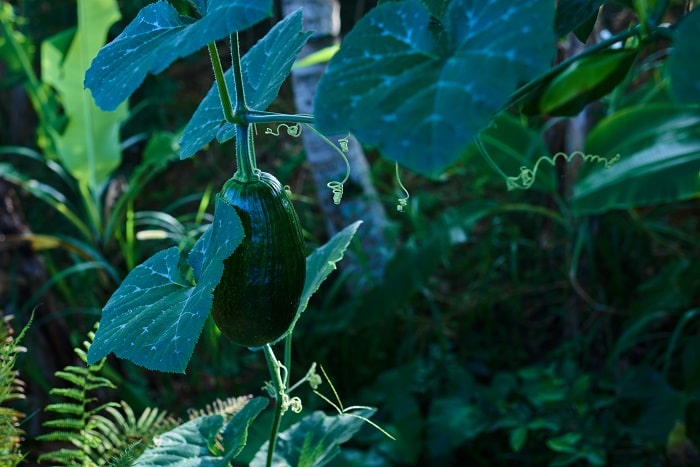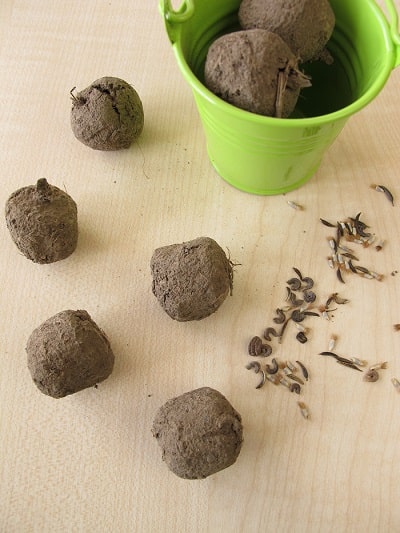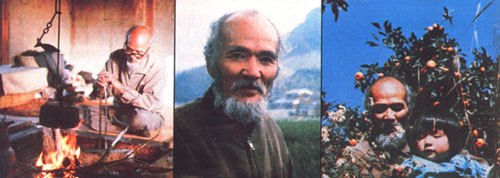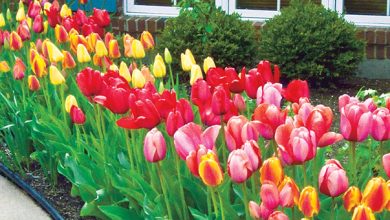Masanobu Fukuoka’s natural farming method

When it is said that «nature is wise», it is not talking for the sake of talking. Masanobu Fukuoka proved that it is possible to produce a large quantity of food by letting life make its way almost alone. This is what is called «natural agriculture . «
Who was this master farmer and what is his method based on? We will tell you.
Masanobu Fukuoka, the grandfather of permaculture
We recently talked to you about permaculture in this article. If you remember well, agriculture learns from nature in it.
Masanobu Fukuoka advocated, before still, a more radical method. This Japanese spoke of natural agriculture .
But who is Masanobu Fukuoka?
Masanobu Fukuoka, the «natural farmer»
Fukuoka was born in 1913 and today he is recognized as a farmer, but before reaching the garden, he passed through the academy.
He trained as a microbiologist and agronomist and was a prestigious researcher of plant diseases in Yokohama. He was a laboratory man until in 1937 he rethought his entire life, his work and his society.
It was then that he left his job and returned to the family farm, where he developed a different perspective on agriculture.
From his point of view, conventional agriculture spoils the land, damages plants and degrades the environment.
How to produce food without damaging the ecosystem? Fukuoka considered that, perhaps, the thing was not about what to do to improve production, but what to stop doing .
And so began «natural agriculture,» one that is based on a very simple philosophy. Because, think, have you ever seen that a forest needs farmers?
Masanobu Fukuoka Natural Farming: Leave Farming Quiet
According to Fukuoka, no one knows more about farming than nature itself. For millions of years it has done it without any problem.
For this reason, natural agriculture can be defined as a wild agriculture , where nature is left to work alone. There is almost no human intervention.
That means abandoning techniques that have always been considered essential in agriculture, such as tillage or fertilization.
Fukuoka defined it as the Wu Wei doctrine («not to do» in Japanese). This way of not acting has the following principles:
- Do not plow
The soil must remain in its natural state. You should not use a plow or any other tool that breaks its surface, because that alters its microecosystem.
- Do not pay
If a natural environment with vegetation does not need fertilizer to be fertile and dynamic, why fertilize the crop?
Natural agriculture says it is not necessary, although it does advocate crop rotation to improve soil recovery from time to time.
- Do not use herbicides or pesticides
There are no weeds or bad insects. You have to interact with them, not destroy them. In addition, these substances pollute soils and kill beneficial microorganisms.
- Do not prune
The branches grow according to their needs for space and light. To prune is to force and dominate, according to this doctrine.
Failure to do all these tasks has implications in the farmer’s efforts, in the amount of waste generated, in the consumption of fossil fuel (none), in the use of agricultural machinery (neither, none) or in fertilizers and other treatments.
In short, natural agriculture is based on imitating nature itself .

Seed balls or nendo dango
One of the few actions allowed in natural agriculture is sowing . Obviously, the plants that interest us will not reach the plot by themselves. Therefore, you have to sow.
Fukuoka proposed using seed balls ( nendo dango ), a simple system that does not need to plow the soil to plant the seeds and does not leave them in view of the birds.
Seed balls are small balls of clay (sometimes also mixed with compost) 1-3 cm in diameter in which the seeds are hidden. They are spread over the land and the first rains soften the clay and release the seeds.
In addition to the seeds of the varieties that you want to grow, other plants are included that help fertilize the soil and protect the development of those that will give us fruit. For example, the white clover.
The legacy of Masanobu Fukuoka
Fukuoka cultivated without attracting attention until in 1975 when he published the book The Revolution of the Blade of Straw , in which he explained natural agriculture. At that time he became a reference and traveled around the world to talk about his philosophy. His work has been an essential guide for organic farmers and permaculture.
His legacy goes beyond food production. Fukuoka was interested in combating desertification and his method can be used to reforest dry areas. Its effectiveness has been demonstrated in arid places where green has reappeared, successes that you can read in his book Sowing in the desert .
Recovering arid and desert soils is a new opportunity for life. Communities in these areas can regain agriculture, get more food, and avoid famine and poverty.
With such a legacy, the teachings of Master Fukuoka are certainly worth heeding. Don’t you think?


![Photo of Citrus Diseases: [Types, Characteristics and Prevention]](https://www.complete-gardening.com/wp-content/uploads/2022/08/citrus-diseases-types-characteristics-and-prevention-390x220.jpg)

![Photo of Washingtonia Robusta: [Planting, Care, Irrigation and Substrate]](https://www.complete-gardening.com/wp-content/uploads/2022/08/washingtonia-robusta-planting-care-irrigation-and-substrate-390x220.jpg)
![Photo of How to Plant Padrón Peppers: [Complete Guide]](https://www.complete-gardening.com/wp-content/uploads/2021/06/Pementos_de_Padron-390x220.jpg)